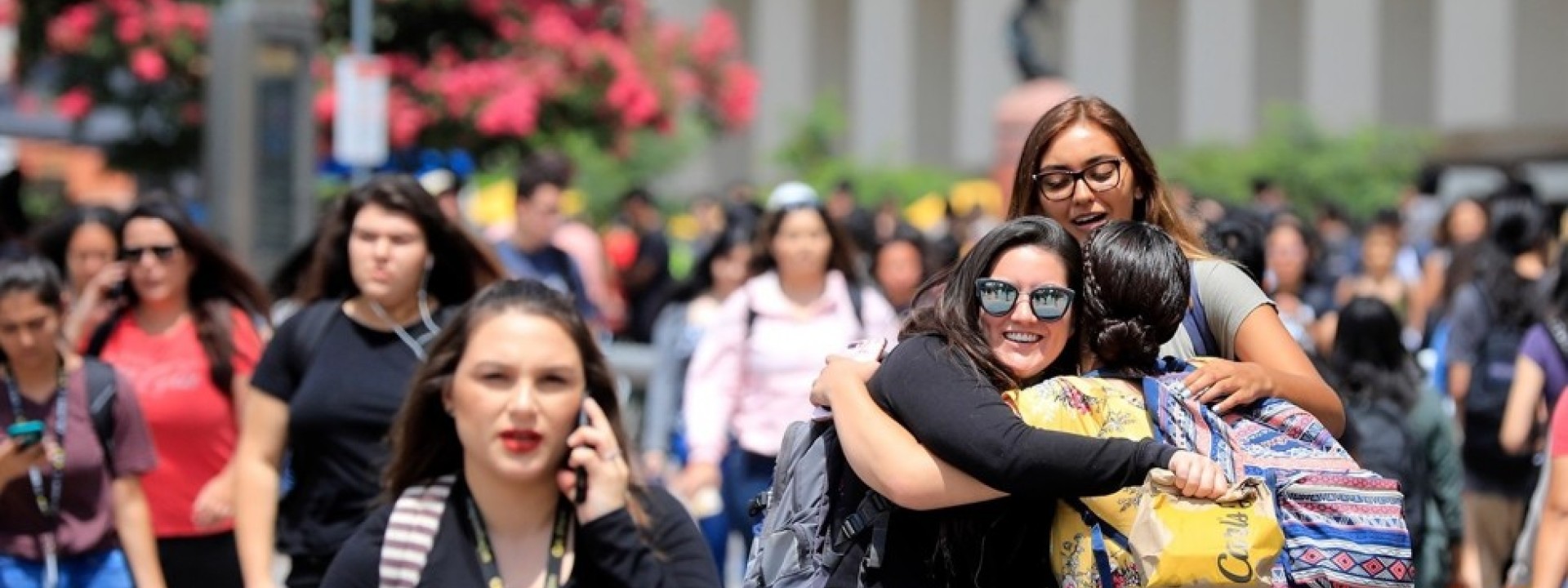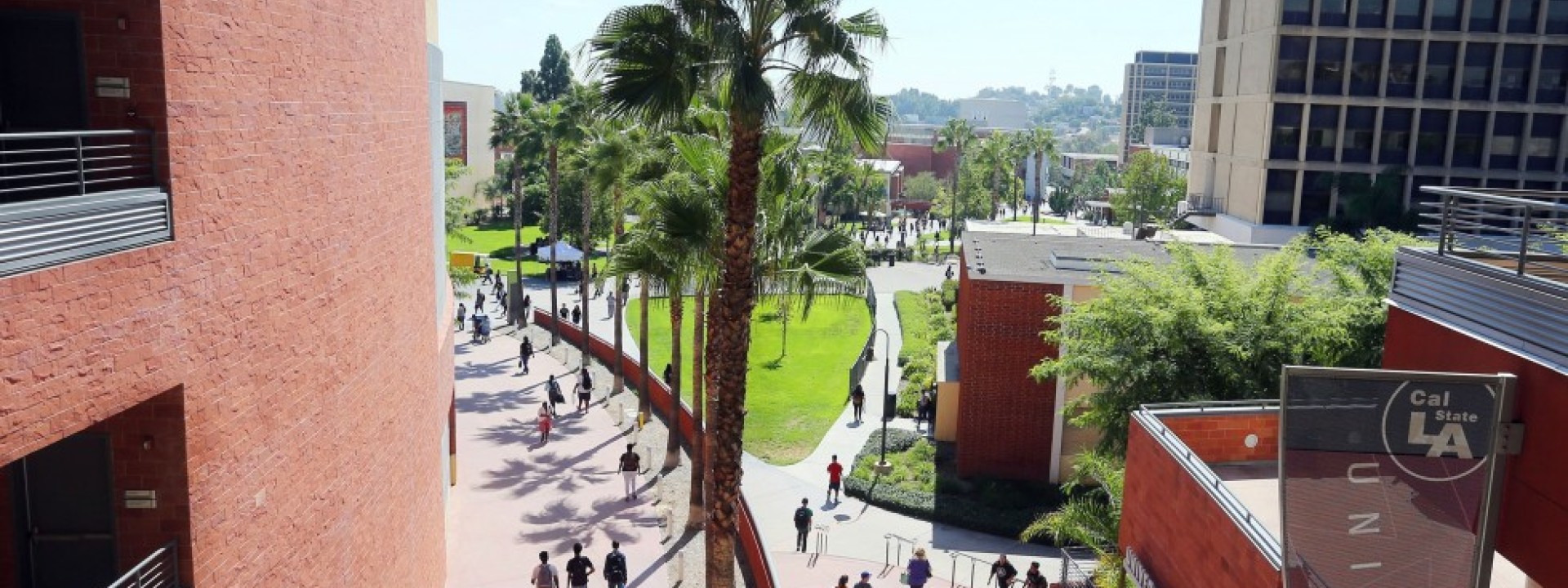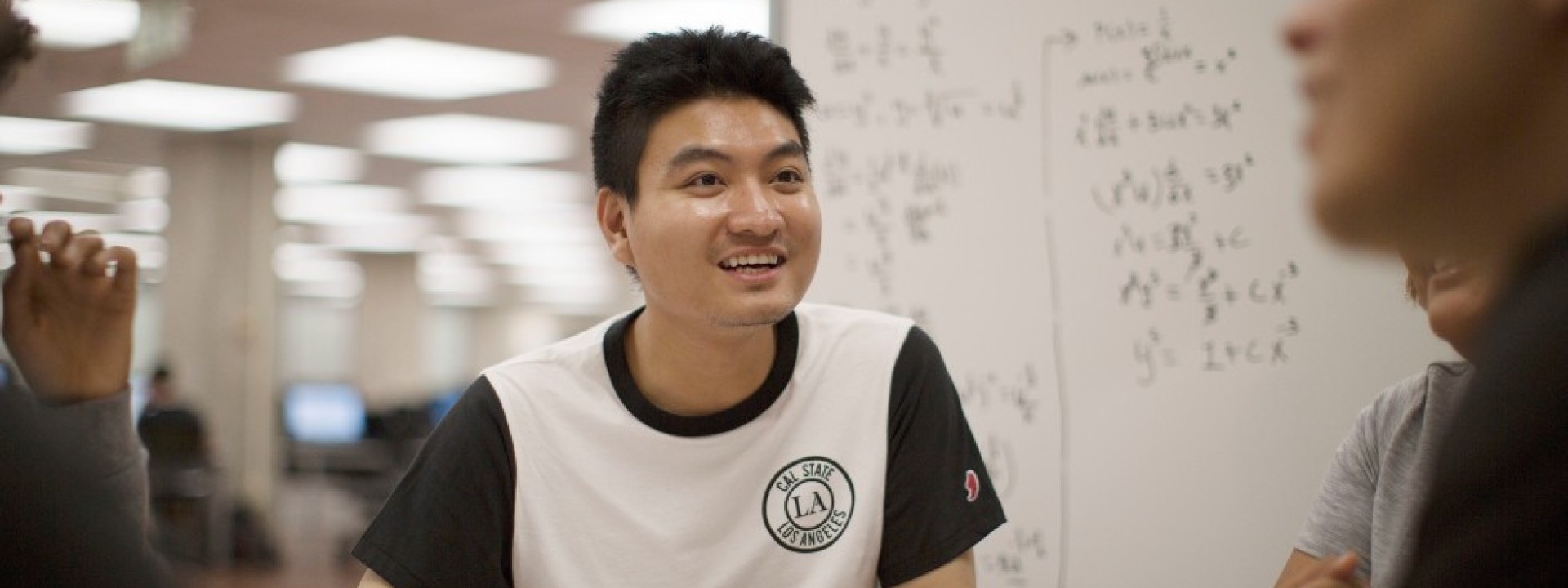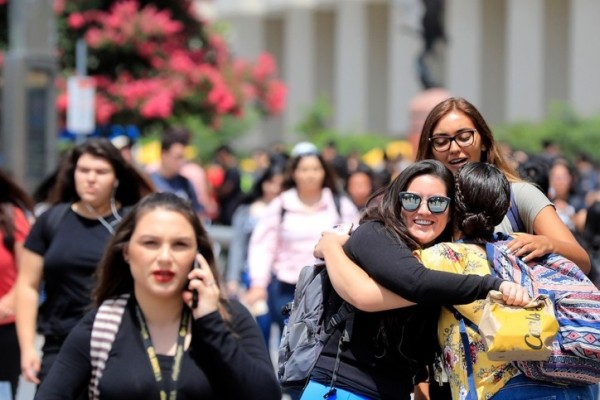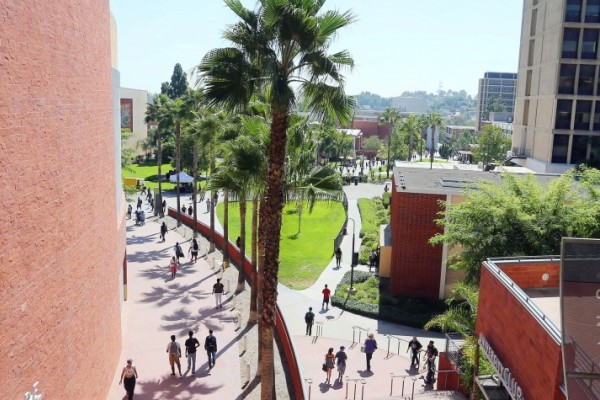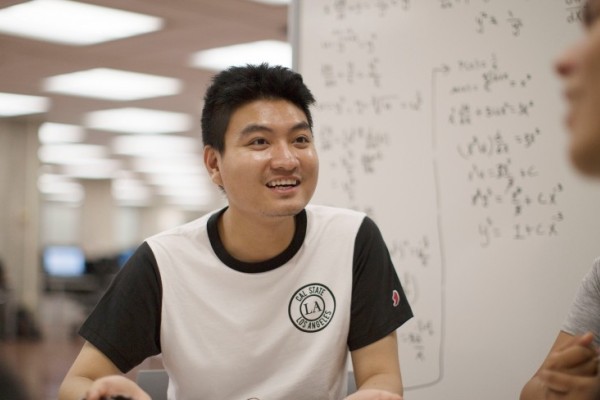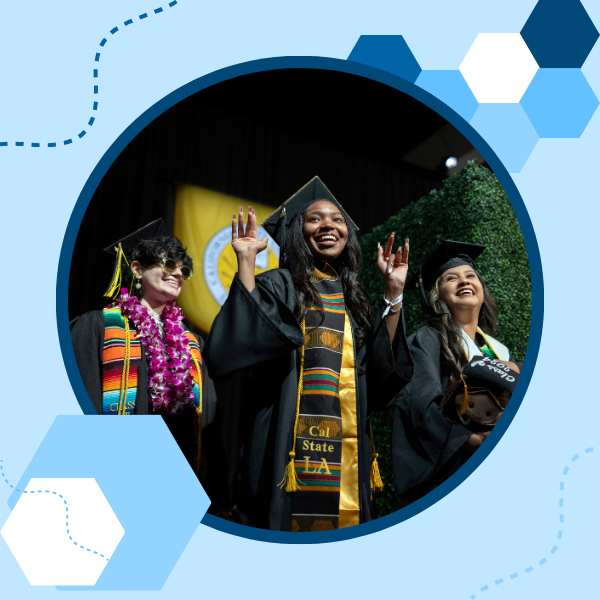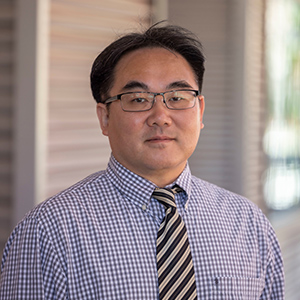Want to Help People and Build a Powerful Career?
Are you passionate about making a difference in the lives of people with disabilities? The Master of Science in Counseling, Option in Rehabilitation Counseling program at Cal State LA, prepares aspiring rehabilitation counselors for careers that assist people with disabilities to live fulfilling lives. The curriculum uses a holistic approach to address the medical, psychological, and social aspects of disability.
The mission of the Master of Science in Counseling, Option in Rehabilitation Counseling Program is to recruit, retain, and graduate students from a remarkably diverse urban center to become rehabilitation counselors prepared to perform the full scope of practice of the profession. The Program creates a learning environment that shapes a professional rehabilitation counselor identity. Graduates will be qualified to provide the full scope of rehabilitation counseling-related services to individuals who have disabilities in order to maximize their personal and professional potential.
Information Sessions
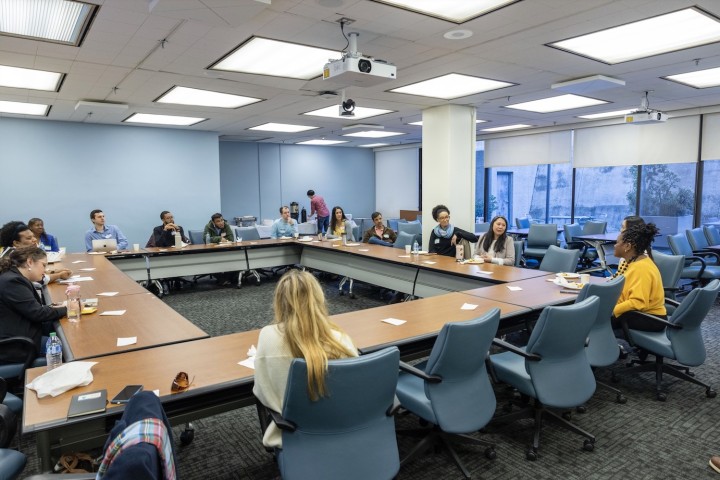
Rehabilitation Counseling Program Information Session-03
Friday, November 14, 2025 from 10 to 11am
Zoom Link: https://calstatela.zoom.us/j/88915332556 Meeting ID: 889 1533 2556
To View the past informational session, click here:
View Session
Passcode for session: n!qM7Bvi
What is Rehabilitation Counseling?
Rehabilitation counseling is a systematic process which assists persons with physical, mental, developmental, cognitive, and emotional disabilities to achieve their personal, career, and independent living goals in the most integrated setting possible through the application of the counseling process.
The counseling process involves communication, goal setting, and beneficial growth or change through self-advocacy, psychological, vocational, social, and behavioral interventions. The specific techniques and modalities utilized within this rehabilitation counseling process may include, but are not limited to:
- Assessment and appraisal
- Diagnosis and treatment planning
- Career (vocational) counseling
- Individual and group counseling treatment interventions focused on facilitating adjustments to the medical and psychosocial impact of disability
- Case management, referral, and service coordination
- Program evaluation and research
- Interventions to remove environmental, employment, and attitudinal barriers
- Consultation services among multiple parties and regulatory systems
- Job analysis, job development, and placement services, including assistance with employment and job accommodations
- The provision of consultation about, and access to, rehabilitation technology
Applications Open October 1, 2025
Our program admits 36 students each fall for full-time graduate study and currently has two full-time faculty and six adjunct faculty members. The 70-semester-unit program requires three years to complete, has a near-perfect graduation rate, and prepares counseling professionals for a uniquely qualified scope of work. Many of our students have job offers prior to completing their graduate program. Graduates go on to work in a wide range of rehabilitation-related settings with competitive wages and opportunities for advancement.
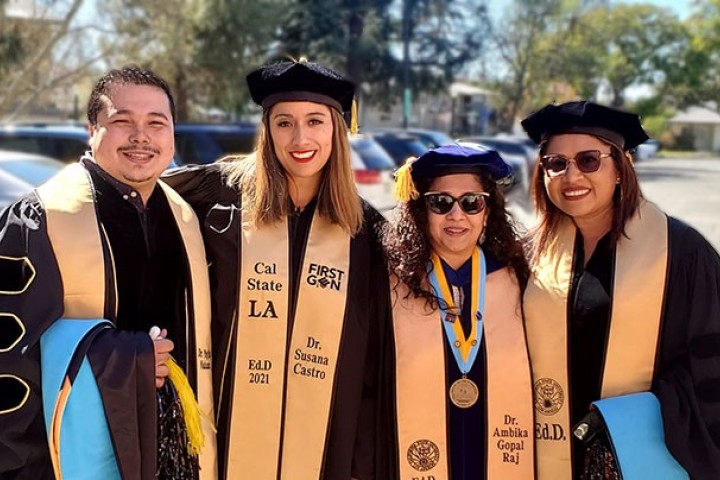
Join a Program That Delivers Results
Don’t wait—start your application today and be part of a program that transforms lives!
How We Support Your Success
Program faculty systematically evaluate and improve the program based on student and community stakeholder feedback on the following program objectives:
- Distribute program brochures via e-mail
- Enhance our web presence
- Present on the program to relevant organizations, agencies, classes at Cal State L.A., and other colleges and universities
- Networking with employers at practicum and internship sites
- Encourage participation in the student Rehabilitation Counseling Association and other rehabilitation-related state and national organizations to further develop their professional identity
- Provide accurate, timely, and effective advisement throughout the academic year
- Help students remedy academic difficulties
- Students will be oriented to the roles and functions of specialty areas in counseling and related ethical, legal, and professional issues (COUN 5001, 2.F.1)
- Students will recognize the richness and uniqueness of socially and culturally diverse populations, providing equitable services to all individuals (COUN 5103, 2.F.2)
- Students will be able to recognize consumers’ strengths and capabilities throughout their lifespan (COUN 5000, 2.F.3)
- Students will establish their knowledge and expertise in career development, the world of work, and the vocational implications of disability, including the knowledge to assist with issues of accommodation and accessibility (COUN 5140, 5149, 2.F.4)
- Students will develop effective individual counseling strategies (COUN 5005, 5114, 2.F.5)
- Students will develop effective group counseling strategies (COUN 5160, 2.F.6)
- Students will be able to select, administer, score, and interpret common assessments in counseling (COUN 5002, 2.F.7)
- Students will be able to appropriately evaluate the effectiveness of interventions and programs (COUN 5003, 2.F.8)
- Students will obtain practical experiences in working with people with disabilities in community, public, private sector agencies, and colleges and universities within an urban environment (COUN 5187, 5188, Section 3)
- Students will promote the dignity and worth of all individuals, and advocate for people with disabilities so that they receive maximum benefit and equitable treatment in society (COUN 5103, 5140, 5149, 5.H)
- Students will identify the medical and psychosocial aspects of a wide range of disabilities (COUN 5111, 5142, 5143, 5.H.2.b, c, d, e)
- Students will be able to conceptualize an individual’s functioning, disability, and health and develop a related program of treatment (COUN 5111, 5142, 5143, 5.H.2.b, c, d, e)
- Share with students and graduates job postings on our website
- Follow-up on and document alumni employment
- Follow-up on CRCC exam results
- For students pursuing counselor licensure, follow-up on post-master's supervised hours, State Ethics and Law exam, and performance on the NCMHCE.
- After two-years of employment, create supervised practice opportunities for future students
Rehabilitation counseling is a growing field with strong career prospects across diverse settings. According to the Bureau of Labor Statistics, employment for rehabilitation counselors is projected to grow by 10% from 2018 to 2028—faster than the average for all occupations—resulting in more than 11,800 new jobs.
Graduates commonly work in community and vocational rehabilitation services (30%), individual and family service organizations (18%), and state government agencies (13%). Other opportunities include nursing and residential care facilities, as well as private practice. With a wide range of career paths and consistent demand, rehabilitation counseling offers both job stability and meaningful, purpose-driven work.
As graduates from the Master of Science degree in Counseling, Option in Rehabilitation Counseling, one may find work in a variety of settings:
Read More
- Assisted and Independent Living Facility
- Community College or University
- Community Rehabilitation Center
- Correctional/Detention Center or Prison
- Disability Management/Insurance Company
- Employee Assistance Program
- Forensic Rehabilitation Setting
- Hospital: Traditional, psychiatric, or Rehabilitation
- Non-Profit Rehabilitation Agency (Easter Seals, Goodwill, Jewish Vocational Services, United Cerebral Palsy)
- Private Practice
- Secondary School
- Senior Citizen Center
- Skilled Nursing Facility
- Social and Human Services Office
- Unemployment/Employment Services Office
- Veterans Affairs Department
- Workforce Development Center
- Youth Guidance Organization
Graduates may hold a variety of positions:
Read More
- Career/Vocational Counselor
- Case Manager
- Certified Rehabilitation Counselor (CRC)
- College Career Planning Counselor
- Instructor
- Coordinator for Student Disability Services
- Employment Officer
- Grant Administrator
- Life Care Planner
- Long-term Disability Specialist
- Mental Health/Clinical Counselor (Licensed Professional Clinical Counselor, LPCC)
- Rehabilitation Agency Director
- Researcher
- Residence Counselor
- State Vocational Rehabilitation Counselor (Qualified Rehabilitation Professional, QRP)
- State Vocational Rehabilitation Team Leader
- Substance Use/Addictions Counselor
- Testing Specialist/Vocational Evaluator
- Transition Services in Secondary Schools
- Veterans Affairs Vocational Rehabilitation Counselor
- Vocational Expert
The Master of Science in Counseling program is accredited by the Council for Accreditation of Counseling and Related Educational Programs (CACREP). Research suggests CACREP graduates perform better on certification examinations, an important measure of student success. CACREP accreditation is the recognized training standard for counselors by the Institute of Medicine and the Veterans Administration, allowing our students access to competitive employment opportunities. CACREP-accredited curricula are consistent with state counselor licensure laws including California, affording a pathway for our students to licensure and portability of that license.
CACREP Accreditation provides recognition that the content and quality of the program has been evaluated and meets standards set by the profession. The student, as a consumer, can be assured that appropriate knowledge and skill areas are included and that the program is stable, professionally and financially.
CACREP Vital Statistics Survey
For the Academic Year 2021-2022
- The number of graduates in the past year: 25
- Completion rate: 90%
Licensure or certification exam pass rates:
Certified Rehabilitation Counselor Exam: 50%
Licensure exams for the California Licensed Professional Clinical Counselor (LPCC):
- California Ethics and Law Exam: 100%
- National Clinical Mental Health Counselor Examination (NCMHCE): 100%
- Job placement rate of students/graduates: 97%
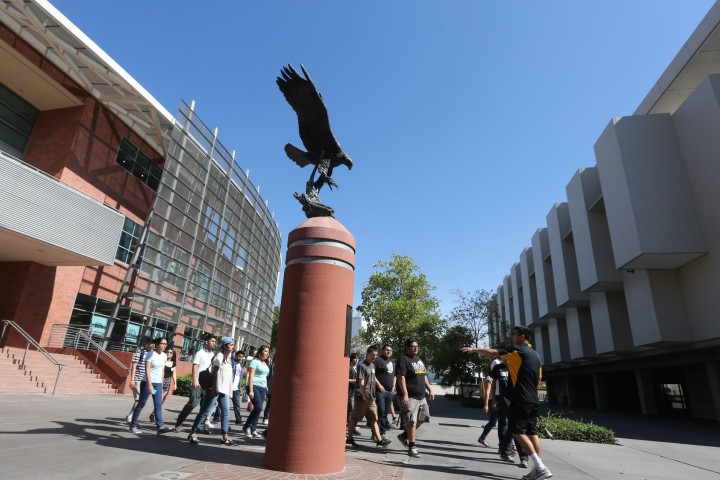
Certificates Clinical Counseling
Admission to the program requires current enrollment in the M.S. in Counseling option in Rehabilitation Counseling program at California State University, Los Angeles.

Certificate in Higher Education and Career Counseling
Admission to the program requires current enrollment in the M.S. in Counseling option in Rehabilitation Counseling program at California State University, Los Angeles.
The certificate requires evidence of completion of 12 required units, with a minimum B (3.0) average. Refer to Graduate and Postbaccalaureate Studies: General Information for general regulations governing all certificate programs.
Program Faculty
As part of the Rehabilitation Counseling Program, students receive individual advisement and instruction from expert faculty members who combine extensive classroom-teaching experience, research, and pre-service and in-service development in the area of rehabilitation counseling. For more information regarding rehabilitation counseling, contact the faculty below:
Heidi Paul, Ph.D., CRC, LPCC
Title: Professor
Office: KH C1033
Phone: (323) 343-4439
Contact Email: hpaul@calstatela.edu
Website: http://www.calstatela.edu/faculty/hpaul/
Zoom Link: https://calstatela.zoom.us/my/hpaul
Ramar Henderson, Ph.D., APCC, CRC
Title: Assistant Professor
Office: KH C1064
Phone: (323) 343-6161
Contact Email: rhender9@calstatela.edu
Zoom Link: https://calstatela.zoom.us/my/rhender.phd
Jeong Han Kim, Ph.D., CRC
Title: Professor
Office: KH C1032
Phone: TBD
Contact Email: jkim496@calstatela.edu
Zoom Link: TBD
